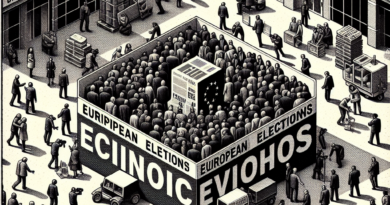European elections: who are the frontrunners and why they are important
European elections 2024, why has there been a lot of talk recently about the frontrunners? As we get closer to the deadline for the presentation of the lists – the polls will open on 8 and 9 June – the proverbial great maneuvers within the parties are underway.
In the European elections the electoral law – purely proportional and with a threshold at national level set at 4% – will divide Italy into five constituencies: North-West, North-East, Centre, South and Islands.
In total we will elect 73 MEPs, with parties that cannot create coalitions but only unitary lists: thus more political forces can unite under the same symbol and run to try to exceed 4%.
Each party – or list – will have to present a list for each constituency: multiple candidatures are permitted and each voter will be able to express up to three preferences all within the same list.
But what are the leaders then? Let's see in detail what they are and why they are considered so important in view of the 2024 European elections which will be held in June.
read also European elections 2024, results predictions: who will win? The frontrunners in the European elections It will not be easy for the various candidates to be elected in the 2024 European elections; just to give an example, Fratelli d'Italia, which according to the polls is largely in the lead in voting intentions, should bring around 24 deputies to the European Chamber.
Based on the number of votes obtained, the number of seats obtained by the lists that exceeded 4% in the various constituencies is determined.
To give another example, if the Democratic Party were to obtain three seats in the Center constituency, the three candidates who received the most votes on the list will become MEPs.
Competition is consequently intense even within the parties themselves, so much so that in the European elections there are no seats considered closed unlike in the general elections; furthermore, the electoral campaign for a candidate is very expensive, at least 50,000 euros to try to get to Strasbourg and Brussels.
The head of the list is thus the first name on the list of a party in each constituency.
In 2019 Matteo Salvini and Giorgia Meloni presented themselves as leaders of Lega and FdI respectively in all five constituencies, Silvio Berlusconi in four, leaving the Center to Antonio Tajani.
The list leader must still obtain more votes than the other candidates to hope to be read, but the position at the top of the list can certainly give him more chances with the voter who could assign him one of the three preferences available almost automatically.
Five years ago Salvini and Meloni ran despite knowing that they would then refuse the seat otherwise they would have had to resign from our Parliament; However, the presence of the leader can attract several votes.
A recent survey by Euromedia Research estimated that if Giorgia Meloni and Elly Schlein were to run as leaders in the European elections, both Fratelli d'Italia and the Democratic Party would obtain more votes than the estimate made without their candidacy.
Hence the importance of the frontrunners in the European elections, with only Matteo Renzi among the various leaders who has so far made his candidacy official, but many others could soon be added.




